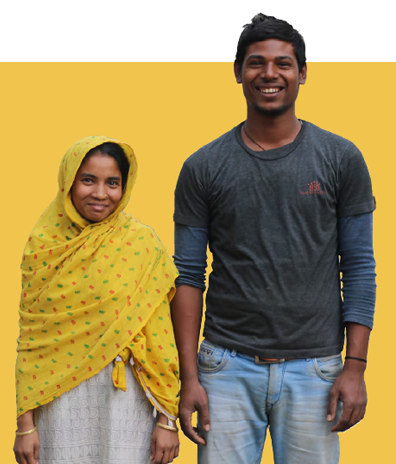TCIHC Hosts Mini University and Study Tour for New Cities in Uttar Pradesh
TCIHC’s model triggered demand from the National Health Mission to expand into additional cities in Uttar Pradesh. In response, TCIHC hosted its first virtual Mini University (Mini U) to introduce its high-impact approaches (HIAs) to new city officials from Farrukhabad, Bulandshahr, Etawah, Rampur and Mau by sharing first-hand experience and lessons learned from their implementation in the high-performing cities of Firozabad, Mathura, Jhansi, Agra and Saharanpur. The objective of the Mini U was to share the transformative effect of the HIAs through experienced cities. In attendance were over 48 participants from new and old cities.
Across the five experienced cities, it was often repeated how coaching to strengthen leadership capacity along with the technical capacity to plan, implement and manage the HIAs was imperative in increasing access to quality family planning services. As a result, the experienced cities coached new cities by sharing personal experiences of implementing the proven solutions. Champions from Agra and Mathura captivated participants by sharing experiences of using TCI University (TCI-U) to access uniform guidance, resources and guidelines in the India toolkit and learn from other cities’ experiences in the form of the most significant change stories. District Urban Health Coordinator of Mathura shared: “TCI-U provides resources and high-impact tools which guide cities on implementing successful family planning and AYSRH interventions. These evidence-based tools are comprehensive and simple. I have earned numerous assessment certificates from TCI-U. In addition, the Family Planning Community of Practice (FP-CoP) group created by TCIHC fosters a learning and sharing environment between cities where new cities could also join and learn from each other’s experience.”
The District Urban Health Coordinator of Firozabad shared: “When we chose to partner with TCIHC, we received a package of high-impact tools. We executed FDS in ready-to-start facilities with high-performing ASHAs. The results were promising; thus, we introduced FDS in all UPHCs.”
Akash Gutam, District Urban Health Coordinator of Mathura coached all of the Mini U participants on crucial steps for strengthening urban ASHAs to reap benefits from this proven approach and critical cadre of frontline health workers. He shared: “Demand generation is the biggest challenge in an urban family planning program. TCIHC through on-site coaching and mentoring support coached urban ASHAs, MoICs and ANMs in reviewing and monitoring ASHAs’ performance. The high-impact tool, ‘Strengthening Urban ASHA’ has enhanced urban ASHAs’ skills, improved reporting and record maintenance not only for family planning but for other health programs as well.”
On the mapping and listing HIA, District Urban Health Coordinator of Firozabad explained the significance of this tool: “The biggest difficulty was to assess the accurate urban population and area. This tool helped to identify unregistered slums and populations. Based on the new demarcated area, we developed plans, reallocated ASHAs, assessed training needs and estimated funds required for additional ASHAs, infrastructure and resources. This approach is very effective to uncover unserved areas and ensures service provision to the most vulnerable and left out pockets of the population.”



